Motion and Brief in Opposition to Proposed Protective Order
This is a case for abuse of process and intentional infliction of emotional distress. At the heart of the case are Defendant’s efforts to use the protective order system for several improper purposes. These include:
- Attempting to shut down Plaintiff’s online criticism of him, otherwise protected by the First Amendment, via fabrications that the criticism is threatening and defamatory.
- Attempting to intimidate, harass, and cause severe emotional distress to Plaintiff via false police reports and civil requests for protective orders based on myriad fabrications, including that:
o Plaintiff is “violent and threatening” EXHIBIT A. (Tellingly, Defendant acknowledges in the email that he is attempting to influence Ms. Parsons, even as he notes the matter is on appeal.)
o That everyone who knows Plaintiff knows him to be “dysfunctional,” which is Defendant’s trope alluding to mental illness. EXHIBIT B.
o Trading on offensive and outdated stereotypes linking Defendant’s fabrications about mental illness with a propensity for violence.
- Repeatedly engaging in witness tampering, including contacting three witnesses (Darlene Parsons, Richard Wall and Bob Perry) in an effort to dissuade them from testifying in this case via claims that Plaintiff is a “domestic terrorist.” EXHIBITS C, D.
- Repeatedly threatening Plaintiff, including with physical violence.
- Engaging in spoliation of evidence, including 15 documents, all adverse to Defendant, obtained in subsequent discovery.
- Engaging in improper and abusive discovery, including attempting to depose Plaintiff’s mother while terminally ill and in palliative care, in violation of Pennsylvania Rules of Civil Procedure and the Pennsylvania constitution. The latter affords broad protections to bloggers and other media outlets sufficient to render the subpoena in question ultra vires on its face. Defendant then had the temerity to claim, in pleadings filed with the Venango County Court of Common Pleas, that it had improperly quashed his subpoena in an ex parte proceeding. (In later litigation before the Massachusetts courts, Defendant claimed he could not have committed perjury in Virginia because he “didn’t even know [Ms. Yahner’s] name. Yet that is the name under which he attempted to subpoena her, and the name he referenced in his Virginia perjury.)
And it is well established that any of these actions are sufficient under Virginia law to support a claim of abuse of process.
Counsel for the proposed deponents now files his motion for a protective order in discovery after previously agreeing, without objection, to schedule depositions for most of the listed deponents. Due to the death of Plaintiff’s mother and unexpected issues with administering her estate, Plaintiff was unable to proceed with depositions at that time. Nor does counsel for the proposed deponents cite changed circumstances sufficient to make Plaintiff’s request objectionable.
It also is worth noting that Defendant did not see anything improper when he attempted to subpoena Plaintiff’s mother, then terminally ill, incontinent, dependent on oxygen and morphine, and suffering from a profound anxiety disorder. Indeed, he attempted to do so despite the fact that relevant state law expressly forbids discovery in protection from abuse cases absent prior leave of court. Defendant’s then attorney knew, or had reason to know, that any attempt to domesticate a UIDDA subpoena under these circumstances was ultra vires on its face.
Plaintiff now objects to the proposed protective order as irrational, overly broad, violative of the liberal discovery provisions articulated in the Virginia Rules of Civil Procedure, and indicative of the fact that Defendant has repeatedly lied to this Court, thus perpetrating a fraud upon the Court.
Indeed, the irony is that the fastest way to shut down this litigation would be to obtain information from these witnesses in support of Defendant Malm’s claims of “violent and threatening” behavior, harassment, mental illness, embezzlement, computer hacking and more. Indeed, given the breadth of Defendant’s claims, one would presume that deponents would be eager to share their experiences.
Argument in Favor of Discovery and in Opposition to Proposed Protective Order
Throughout this case, defense counsel has played an ongoing game of “stiff the pro se litigant,” marked by a facially objectionable failure to engage in good faith discovery. This motion is the latest such effort.
For example, Defendant Malm, an Episcopal priest, refuses to answer questions about his fabrications in an email he sent to his bishop, Shannon Johnston, in which he claimed that issues with proposed deponent Kelly Gable happened prior to Plaintiff’s arrival at Grace Church This is a facially obvious fabrication, and no one is better suited than Ms. Gable herself to refute Defendant’s claims. EXHIBIT E
Tellingly, Defendant’s basis for his refusal was that defense counsel Wayne Cyron had a copy of the email in question, and Defendant did not have the email. EXHIBIT F Nor has Defendant updated his discovery responses as required by the Rules.
Yet the very same email was introduced into evidence via Mr. Cyron’s pleadings. Moreover, the email was not provided in the original litigation in this matter, despite being expressly within the ambit of discovery. Moreover, neither defense counsel nor counsel for the proposed deponents has yet to offer any explanation to rebut the conclusion that this was spoliation of evidence on the part of Defendant and his then attorney, Jeffery Chiow.1 Indeed, Mr. Cyron has repeatedly attempted to claim that his
1 Mr. Chiow’s inflammatory rhetoric, dilatory conduct, false statements of law and fact to the courts, disregard for the Rules of Civil Procedure, and refusal to honor this Court’s Order to Compel in the original litigation warrant professional discipline. Moreover, on March 17, 2019, Chiow filed a false police report, claiming Plaintiff had
client did not engage in vexatious and tortious conduct on the basis that it was not his client, but rather Mr. Chiow, who engaged in this conduct. This, of course, ignores basic definitions of agency law, and Defendant has neither denied the existence of an attorney/client relationship, nor repudiated the actions of his attorney.
Today, defense counsel and counsel for the proposed deponents continues, albeit on a lesser scale, that pattern of inaccurate statements, including:
1. Maintaining the fiction that Ms. Yahner’s blog was threatening.
2. Maintaining the fiction that Plaintiff engaged in “violent and threatening behavior.”
3. Falsely claiming that the Plaintiff has sued the Episcopal Diocese of Pennsylvania.
4. Falsely claiming that Plaintiff has blogged under the names of various siblings a curious claim, as Plaintiff’s only sibling died well before the advent of the Internet. Tellingly, Mr. Cyron made that claim almost 20 years to the day after the death of Plaintiff’s brother, and subsequently ignored requests for an apology apropos a seemingly intentionally vexatious claim.
5. Falsely portraying the litigation that results from Defendant Malm’s vexatious civil complaints as somehow inappropriate or oppressive. Yet Defendant has repeatedly acknowledged that Plaintiff has never threatened him. Moreover, any rational actor would recognize that bringing a facially illusory civil proceeding in this case, for protective orders would result in counter claims against all relevant parties. Such behavior, referred to as DARVO, or “Deny and Reverse Victim and Offender,” is a hallmark of an abusive personality such as Defendant.
Relatedly, in prior litigation, Mr. Youssef’s firm asserted the ecclesiastical abstention doctrine as a defense. Yet both the Episcopal Diocese of Virginia, Bishop Susan Goff, and the Episcopal Diocese of Massachusetts have expressly taken a pass on efforts to address Defendant Malm’s abusive conduct via ecclesiastical discipline. Indeed, the Episcopal Church was quick to resort to the Virginia courts when several church properties were claimed by dissident factions. Yet the Episcopal Church refuses to make even rudimentary inquiry into Malm’s outrageous behavior.
Nor is this the only time that Defendant’s abusive behavior been an issue. For example, Grace Episcopal Church former associate rector the Rev. Fanny Belanger abruptly resigned her position after complaining to both the diocese and the church vestry about Malm’s behavior, which she describes as “abusive.” In both instances, her complaints were ignored.
These factors underscore the irrational nature of the arguments seeking a protective order in discovery. Indeed, if “everyone who knows of [Plaintiff] knows of his dysfunction,” as Defendant claims, it logically follows that Defendant would want as many people as possible to endorse that claim under oath.
Similarly if Plaintiff were indeed an embezzler as claimed by Ms. Gable in her email, which Defendant Malm forwarded to Bishop Shannon Johnston, then he should welcome an opportunity for Ms. Gable to provide testimony to support that claim. And since Malm claims that “some think he has hacked our systems,” but claims he can’t recall who have told him this even as he remembers the exact dates of his 2015 vacation it should in no way be objectionable to identify witnesses to support this claim.
threatened him. Such conduct is highly inappropriate for any attorney, but all too common at Grace Episcopal Church.
Mr. Youseff’s arguments also contain another facially illogical assertion, which is that Plaintiff seeks discovery in order to provide content for his blogs. This argument is misplaced for three reasons:
• As the unofficial point of contact for the Survivors Network of those Abused by Priests (SNAP) for victims of abuse in the Episcopal Church, Plaintiff suffers no lack of content and can scarcely keep up with the current volume. Indeed, as of this writing, Anglican Watch has had 23,336 page views in the past 30 days, 3,536 visitors, and 2,681 new visitors. That far exceeds even the diocesan website, which had 10,100 page views during the same period; the Grace Episcopal Church website averages less than 1,000 hits per month. Thus, Plaintiff has no need to go to the time and expense of discovery in order to obtain content, as suggested by Mr. Youssef.

• There is a confidentiality order in place for discovery, and neither Mr. Youssef nor Mr. Cyron make any assertion that this has been violated.
• The behavior of several individuals connected with Grace Church is sufficiently damaging to the church’s reputation that it is doubtful that any testimony the proposed deponents could offer would cause additional harm. Highlights:
o For example, on October 27, 2019, moments after leaving divine worship, Ms. Lisa Medley approached Plaintiff on Russell Road She was driving a white Acura TL. Medley slowed, placed both hands on her steering wheel, and made an obscene gesture with both hands.
o Ms. Medley has repeatedly posted false and defamatory statements on the Wartburg Watch, an online anti-abuse publication operated by Plaintiff’s friend and witness,
Darlene Parsons. A review of server logs makes clear that Ms. Medley was the poster, and made these statements under the handle “Long-Time Parishioner.” Per Defendant’s wife, Leslie Malm, the two did so in collaboration. Moreover, both Plaintiff and Defendant are aware that such statements are outside the statute of limitations.
o Ms. Medley’s daughter, Lucy, posted a statement on an online bulletin board urging Plaintiff to kill himself. She was identified via her email and IP addresses.
o Amy Medrick, former parish administrator, spotted Plaintiff on Quaker Lane and made an obscene gesture.
o Two parents connected with Grace Episcopal School assaulted Plaintiff along Russell Road in separate incidents. In one case, the parent was driving a black SUV and deliberately drove his vehicle at the Plaintiff and then had the temerity to contact the Alexandria police and claim that Plaintiff was “jumping in front” of vehicles. In the second incident, the driver of a white pickup truck suddenly swerved toward Plaintiff, even though Plaintiff was on the sidewalk, well away from any curb cuts. Plaintiff sent Patti Culbreth an email warning that further assaults would result in legal action. The license plate of one of the vehicles was VA tags, PBX BAL. A copy of one of the emails follows:
• Moreover, Mr. Youssef is misinformed. Grace Episcopal School is NOT in a separate legal entity from Grace Episcopal Church, and vestry members, including Plaintiff during his time on the vestry, maintain a fiduciary obligation towards both the school and the church.

• Mr. Youssef also misapprehends the timing of Ms. Culbreth’s participation in Defendant’s ongoing tortious activities. Moreover, Defendant lists her as a point of contact in his “talking points” about the matter. Since both sides agree that Ms. Culbreth has never met Plaintiff, Plaintiff wishes to ascertain how she became a “resource.”
Highlights of Testimony Sought
Plaintiff believes that the witnesses in question can provide evidence relating to the following matters:
The Rev. Anne Turner: Since Defendant asserts that multiple people at Grace “understand Bonetti’s dysfunction,” as the current rector Turner would undoubtedly will have heard this claim myriad times if it is true. Tellingly, in deposition, former assistant rector Leslie Steffensen stated she had not heard such statements.
A copy of Defendant’s assertion follows:
Moreover, if indeed church members believe that the church’s systems have been hacked, it is likely that she can identify the exact claims made, who made them, and other salient details. A copy of Defendant’s claim, which was one of the 15 documents improperly withheld in initial litigation, is referenced in
Additionally, in light of the extent of spoliation of evidence in the initial litigation, which included 15 known documents, Plaintiff believes Turner may be able to identify documents relevant to the case, or provide testimony to indicate that this issue is limited to the documents already discovered.
Moreover, as an Episcopal priest and current rector of Grace Episcopal Church, it is axiomatic that Turner would wish for the truth to come out in this matter. Such candor and transparency is essential if her parish is ever to become organizationally healthy.

Ms. Patti Culbreth: In a talking points memo (EXHIBIT G), approved by Mr. Chiow and sent to the Grace Church vestry, Defendant claims that Culbreth is a point of contact for persons who have questions about this dispute. Since Culbreth has never met Plaintiff, both Plaintiff and Defendant would benefit by knowing what information Culbreth possesses and the source of that information.
• Moreover, Defendant’s wife Leslie, as part of her effort at witness tampering involving Dee Parsons, whom she knew at the time would be a witness for Plaintiff at trial, told Dee that teachers at Grace Episcopal School are afraid that Plaintiff “will come in and shoot up the place.” Thus, if that assertion were true, Defendant should have no objection to eliciting testimony from Ms. Culbreth in support of that statement. The other possibility is that Defendant has used the school as part of his tortious efforts to damage Plaintiff’s reputation and cause emotional distress, himself telling teachers, his wife, or both, that they should fear an incident of gun violence. In either case, Culbreth can provide valuable insights to all parties into Defendant’s behind-the-scenes behavior. And yet again, if her testimony supports Defendant’s claims of “domestic terrorism,” then there is no rational reason defense counsel would object to her providing testimony.
• Culbreth may also be able provide insight into the reasons parents of students of the school have assaulted me on multiple occasions, possibly with Defendant’s encouragement. A copy of one communication to her on this topic, including the parent’s license plate number, is included as Exhibit H.
Ms. Kelly Gable: In the case of Ms. Gable, defense counsel entered her fabrication about Plaintiff’s purported embezzlement into evidence by including it in his pleadings Exhibit I. Indeed, although squarely within the ambit of Plaintiff’s original discovery requests, this is one of the documents at the heart of Plaintiff’s spoliation of evidence claim. Thus, Ms. Gable’s testimony will help both parties
ascertain the history of this document. As things stand, neither Mr. Cyron nor Mr. Youssef have proffered any explanation why this and 14 other documents adverse to Defendant were not provided in Defendant’s discovery response.
• Moreover, recognizing the longstanding issue of questionable behavior and veracity on Ms. Gable’s part, Plaintiff offered defense counsel in writing to drop inquiry into this matter if the latter wished to withdraw the email as evidence. This offer was ignored. Thus, if Mr. Cyron still wishes to retain this document as evidence, it is axiomatic that all involved will need additional testimony on this topic.
• In light of Ms. Gable’s assertions to Plaintiff and others that her father sexually abused her prior to his suicide, and that others believe her to be an alcoholic, Plaintiff is more than willing to work with defense counsel to identify topics outside the scope of discovery. That said, the inclusion of her email into evidence unavoidably implicates issues of her credibility as a witness, whether via discovery or at trial in an open courtroom. Plaintiff therefore believes that discovery is the better avenue to address these sensitive topics.
• Plaintiff notes that Ms. Gable’s statement in her email about “forgiveness” reflects a faulty recollection of events, as she was not employed by Plaintiff’s employer in 2013, and no conflict had arisen at the time.
Bishop Susan Goff: As stated previously, in prior litigation the diocese asserted the ecclesiastical abstention doctrine. While Plaintiff believes this to be misplaced, as the claims in question can be decided without reference to internal church decision-making, Plaintiff believes that Goff can provide valuable testimony into the reasons the church has said it will not get involved. Moreover, as the diocese repeatedly pointed out during the property recovery litigation in the Fairfax Circuit, the church is hierarchical in nature, with the diocese holding both supervisory authority over local clergy, and a trust interest in all real and personal property help by parishes and missions. Thus, there is no one better able to testify as to why the diocese refuses to address Defendant’s myriad fabrications, his perjury, his false police reports and more.
• Moreover, Defendant has stated in writing that the diocese supports him in this matter EXHIBIT J. In light of the fact that Goff was contacted directly by Plaintiff to alert her to Defendant’s ultra vires effort to subpoena his terminally ill mother in violation of state law, Plaintiff seeks testimony as to her refusal to supervise Malm, who is subordinate to her.
• In light of Defendant’s documented spoliation of evidence again, 15 documents, all adverse to him it seems likely that Goff can identify further evidence Defendant wrongfully concealed. These include various emails with lawyers discussing the matter on which third parties were copied, thus waiving attorney-client privilege.
• Other diocesan clergy have informed Plaintiff that Defendant has a poor reputation with diocesan leadership. Because this goes to the Defendant’s veracity and reputation, Plaintiff seeks testimony to support or refute these claims.
• In light of Defendant’s known fabrications to Bishop Shannon Johnston, Plaintiff has reason to believe that Goff can identify other fabrications on the part of Defendant. That includes testimony pertaining to Malm’s statement against interest, sent to the Virginia bishops after he obtained a protective order by perpetrating a fraud on the court. A copy of that email was included under the section pertaining to Anne Turner’s testimony.
Lisa Medley: Ms. Lisa Medley served as senior warden at the time of this conflict. Thus, Medley will offer invaluable insight into Defendant’s conduct during the time in question. This includes providing
testimony regarding Defendant’s courtroom claims of “domestic terrorism” via blogging, and “harassing blog posts.”
• Moreover, Medley appears to have acted in conjunction with Defendant to cause distress to Plaintiff, to discredit Plaintiff, and to publish defamatory statements about Plaintiff. Specifically, Medley is known to have published a series of statements about Plaintiff on The Wartburg Watch, posted in concert with Defendant’s wife, Leslie Malm. EXHIBITS K, L. These included claims that Plaintiff was harassing the congregation, that Plaintiff’s late mother was not actually the publisher of her blog despite Ms. Yahner’s written statements to the contrary, and more.
• Additionally, Medley posted online details of giving to the church from Plaintiff’s husband. This information is normally confidential in Episcopal parishes. Thus, Plaintiff seeks testimony as to how Medley obtained this information, including the possibility that it came from Defendant himself, and that she colluded with the Defendant.
• Additionally, Plaintiff seeks testimony in support of Medley’s assertions that Plaintiff harassed members of Grace Episcopal Church. Assuming Medley and defense counsel believe her claims to be true, there is no rational reason they would oppose the taking of a deposition.
Conclusion
For the reasons stated above, arguments from counsel for the proposed deponents seeking a protective order prohibiting discovery from these individuals are misplaced, irrational, violative of the broad discovery envisioned by the Virginia Rules of Civil Procedure, and over-broad Indeed, if Defendant’s various statements to the courts, police, and his own bishop are true, there is no rational reason not to obtain testimony in support of Defendant’s claims.
Moreover:
• Any testimony provided is covered by the Court’s existing confidentiality order, and defense counsel makes no argument to the contrary.
• Any testimony would be confined to a virtual deposition, and thus not would not be unduly burdensome.
• Defense counsel has not negotiated with Plaintiff as required by the Rules of Court to resolve any concerns, and Plaintiff is very willing to work with defense counsel to narrow the scope of discovery or otherwise address specific concerns.
For these reasons, Plaintiff respectfully submits that the motion for a protective order should be denied.
CERTIFICATION
Counsel for the proposed deponents filed his motion for a protective order without attempting to negotiate discovery with the Plaintiff. Plaintiff is, however, willing to negotiate reasonable limits on discovery so as to avoid undue burden on this Court and other parties.
Signed this 25th day of October, 2020.



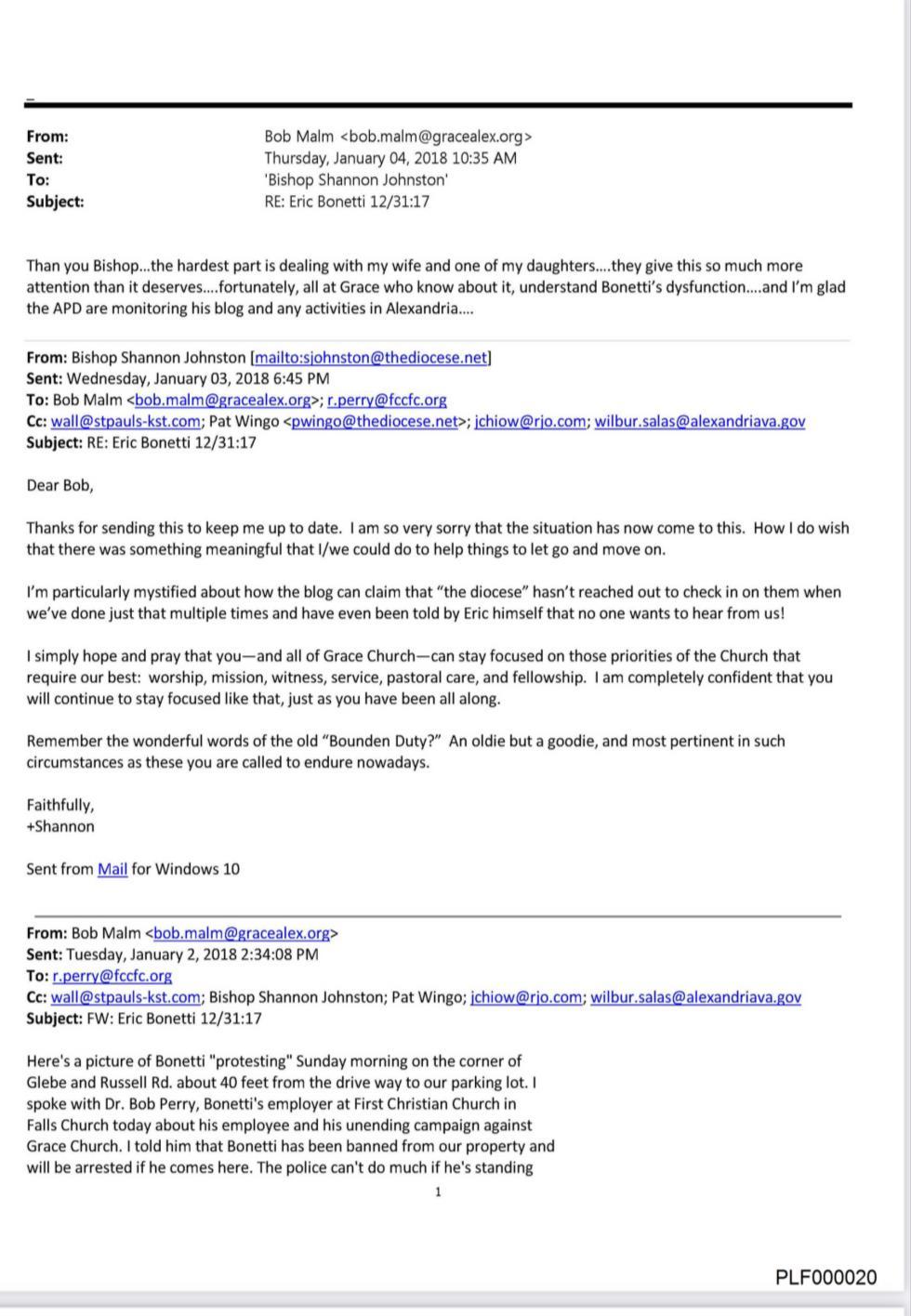
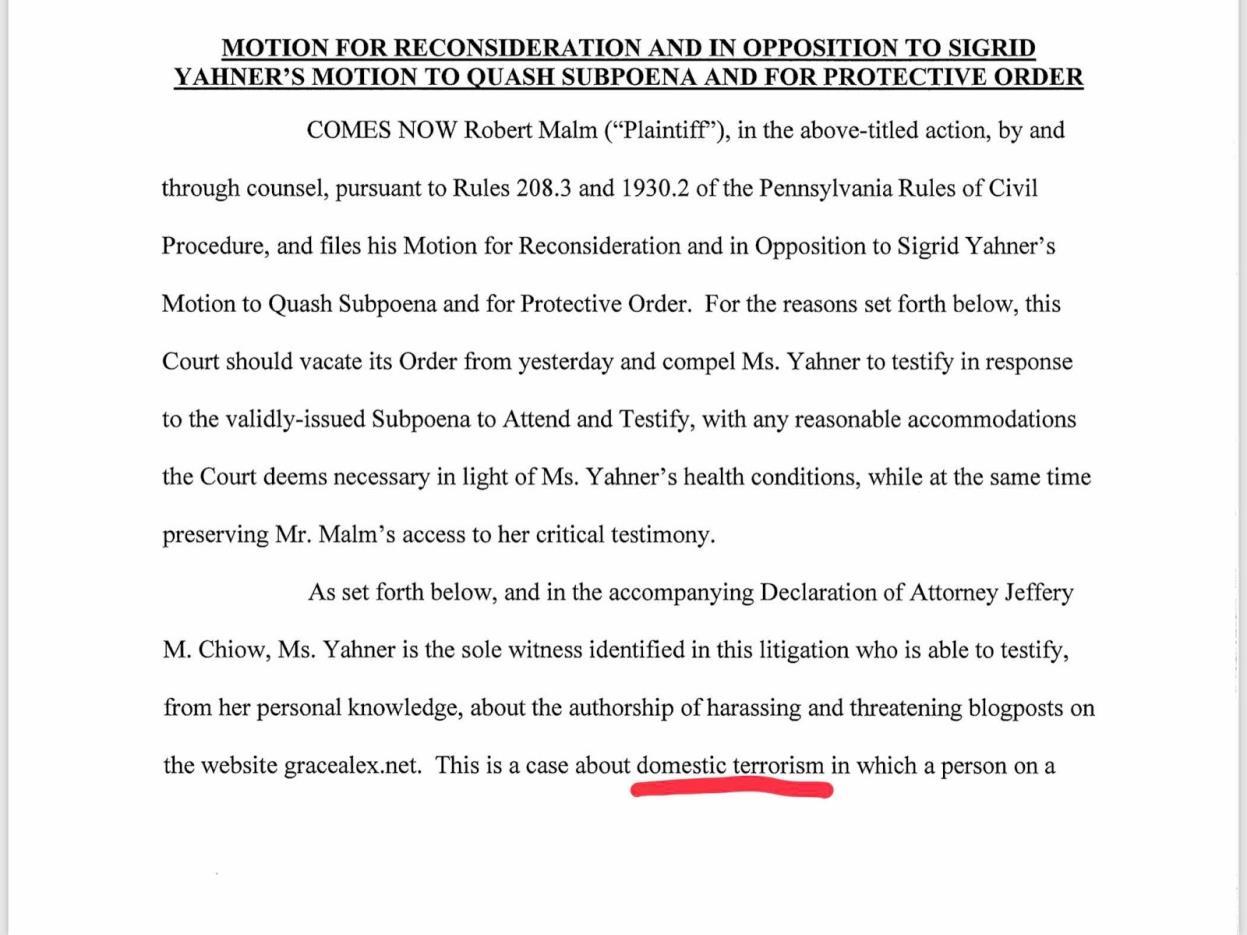


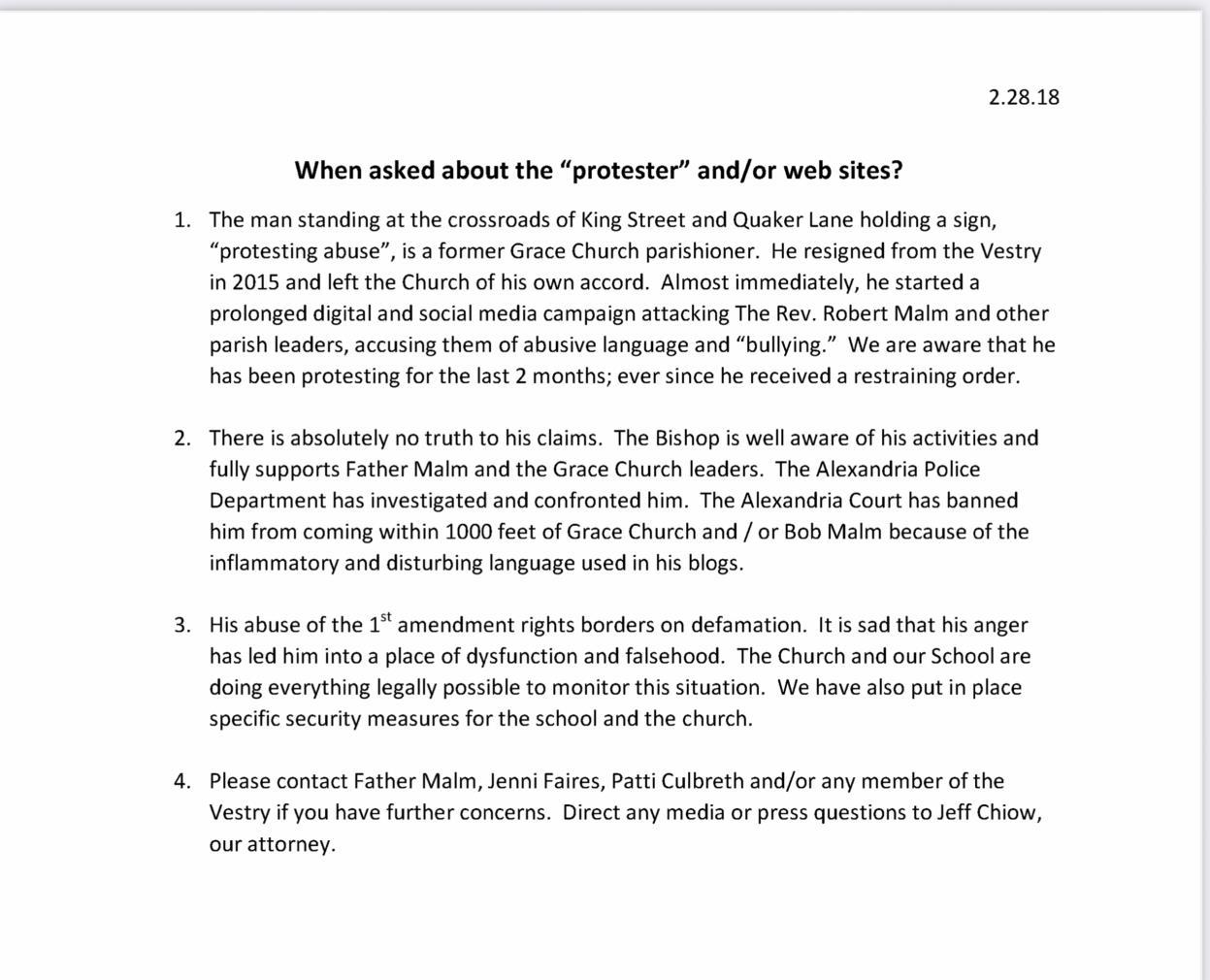
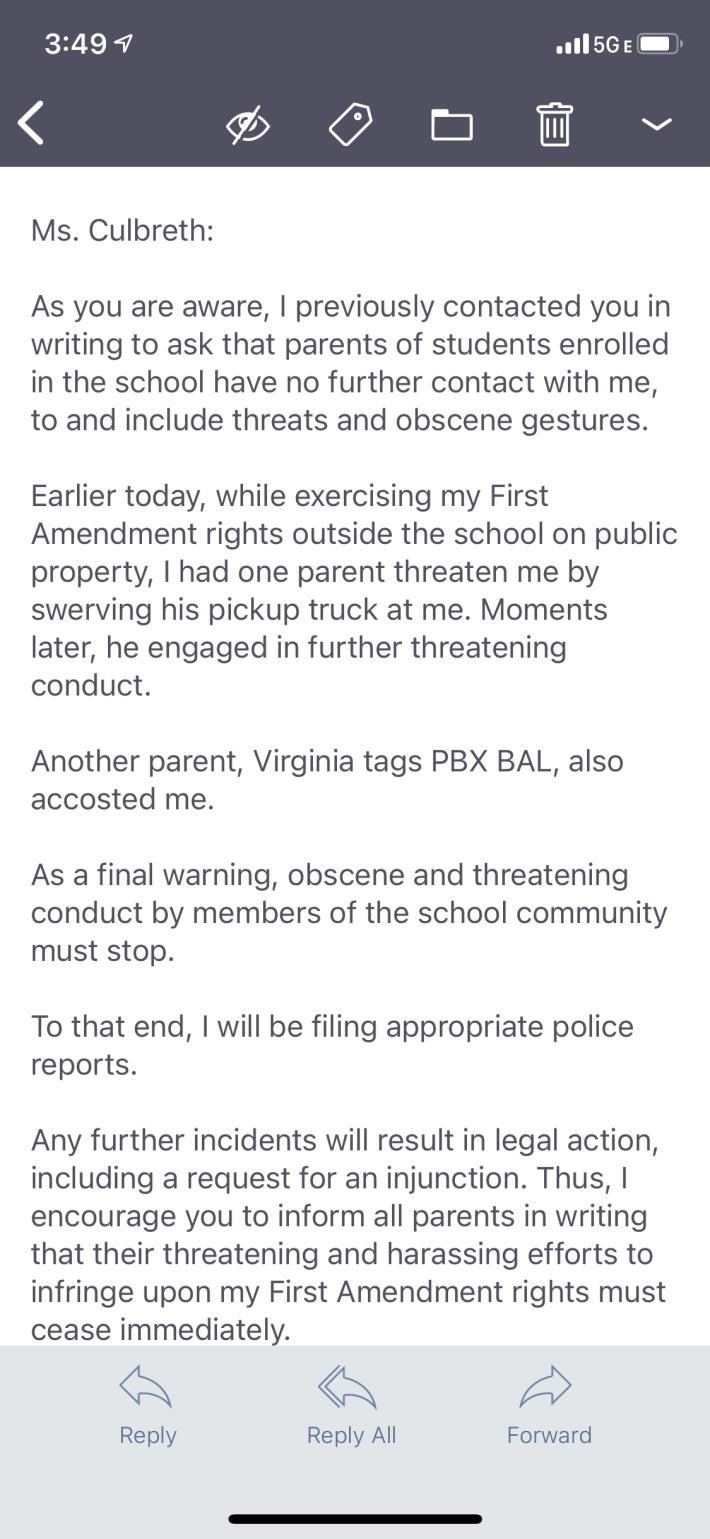



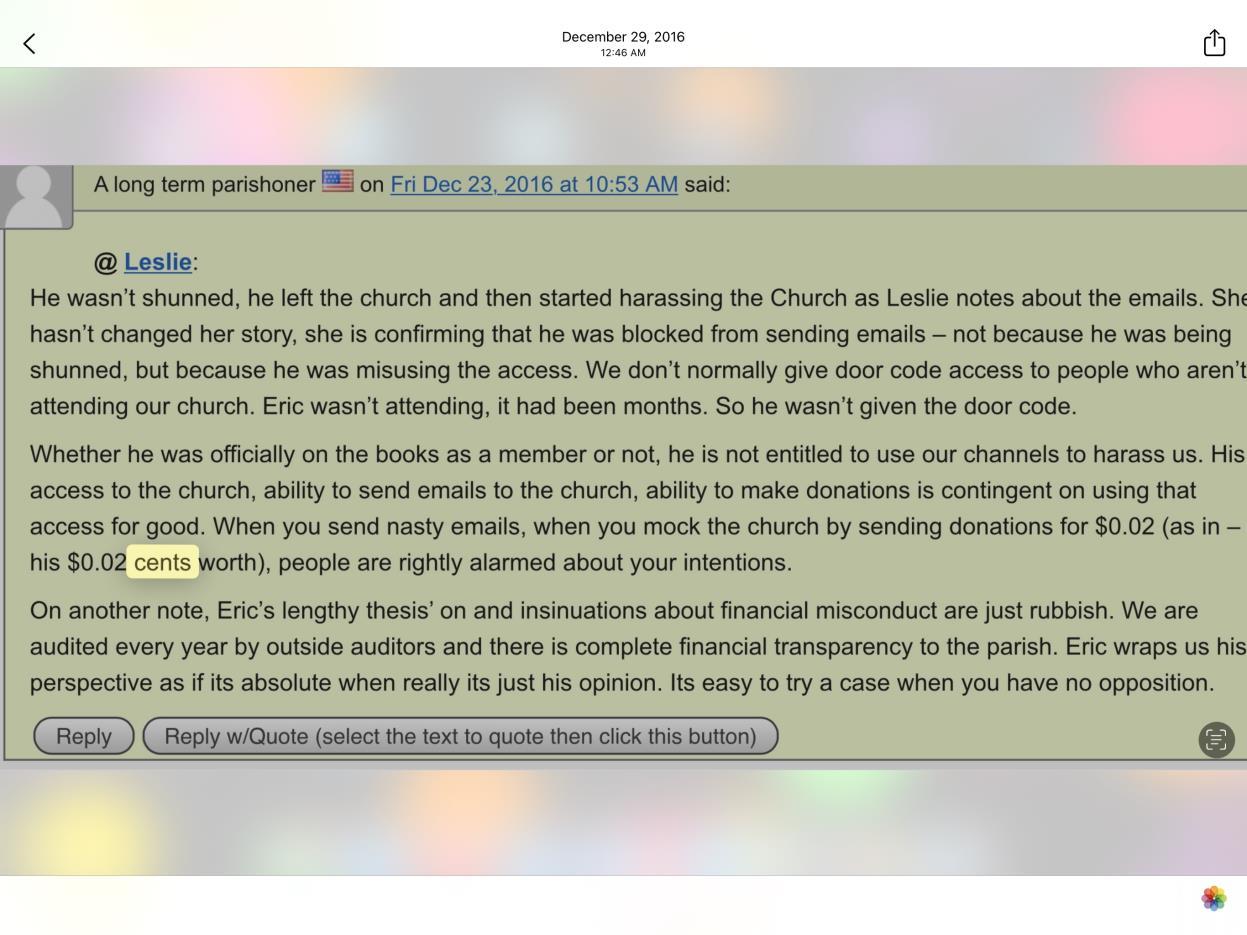
THE CIRCUIT COURT OF THE CITY OF ALEXANDRIA ERIC
ORDER OF COURT
AND NOW, this _____ day of November 2022, having heard arguments from Plaintiff and counsel for the proposed deponents, the motion for a protective order pertaining to Susan Goff, Anne Turner, Kelly Gable, Lisa Medley and Patti Culbreth is denied. Parties will negotiate appropriate arrangements to ensure an undue burden is not imposed on deponents.
